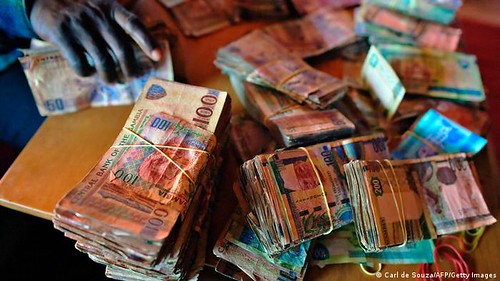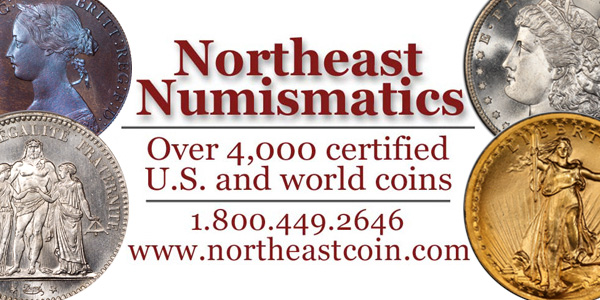
PREV ARTICLE
NEXT ARTICLE
FULL ISSUE
PREV FULL ISSUE
V25 2022 INDEX E-SYLUM ARCHIVE WHY AFRICAN COUNTRIES PRINT MONEY IN EUROPEHoward Berlin passed along this article about why African countries print their paper money in Europe. Thanks. -Editor At least 40 African countries print their money in the UK, France and Germany — decades after independence, raising questions about self-sufficiency. DW examines what prompts them to outsource their currency production. After the ouster of former strongman Yahya Jammeh, The Gambia's central bank destroyed Dalasi notes containing his image Last July, a delegation from The Gambia visiting the Nigerian Central Bank asked if the Gambian dalasi could be ordered from its West African neighbor. The Gambia's central bank governor, Buah Saidy, said the country was running low on its national currency. The tiny West African country had to redesign its currency after the defeat of former President Yahya Jammeh, who ruled The Gambia from 1994 until he was forced into exile after refusing to accept defeat in the 2016 elections. Jammeh, who is accused of human rights violations and killings of political opponents during his 22-year reign, had images of himself on the nation's banknotes. After his ouster, the Gambian Central Bank set about destroying those images. Now, the dalasi notes have images of a fisherman pushing his canoe out to sea, a farmer tending to his rice paddy, and a spattering of colorful, indigenous birds. One issue remains, however: The Gambia doesn't print its own currency. It places orders with UK companies, resulting in a shortage of liquid money. And The Gambia is not alone in having its money printed in another country. More than two-thirds of Africa's 54 countries print their money overseas, mostly in Europe and in North America. It comes at a time when the African Union is trying to usher in a golden, made-in-Africa age that should see Africa beef up production and enjoy greater profits. Among the top firms that African central banks partner with are British banknote printing giant De La Rue, Sweden-based Crane, and Germany's Giesecke+Devrient. Ethiopia, Libya and Angola — along with 14 other countries — place orders from De La Rue, writes Ilyes Zouari, who studies African countries. Six or seven other nations including South Sudan, Tanzania and Mauritania are said to print theirs in Germany, while most French-speaking African countries are known to print their money with France's central bank and with the French printing company Oberthur Fiduciaire. It's not clear how much it costs to print African currencies like the dalasi, although the US dollar costs between 6 and 14 cents. But it is likely that the cost of printing for over 40 African currencies is significant. In 2018, a central bank official in Ghana complained to local journalists that the country spends huge amounts for its UK orders of the Ghanaian cedi. And since countries usually order millions of notes to be carted in containers, they usually have to pay hefty shipping fees. In The Gambia's case, officials say shipping costs rack up a bill of £70,000 (€84,000, $92,000). Still, while it may sound odd, analysts say that African countries printing much of their currency abroad is not unusual. Many countries around the world do it. For example, Finland and Denmark outsource their money-making, as do hundreds of central banks around the world. Just a handful of countries, like the US and India, produce their own currencies. Mma Amara Ekeruche from the African Center for Economics Research told DW that when a country's currency is not in high demand — and not used globally like the US dollar or the British pound — it makes little financial sense to print it at home due to the high cost involved.
To read the complete article, see:
Wayne Homren, Editor The Numismatic Bibliomania Society is a non-profit organization promoting numismatic literature. See our web site at coinbooks.org. To submit items for publication in The E-Sylum, write to the Editor at this address: whomren@gmail.com To subscribe go to: https://my.binhost.com/lists/listinfo/esylum All Rights Reserved. NBS Home Page Contact the NBS webmaster 
|

